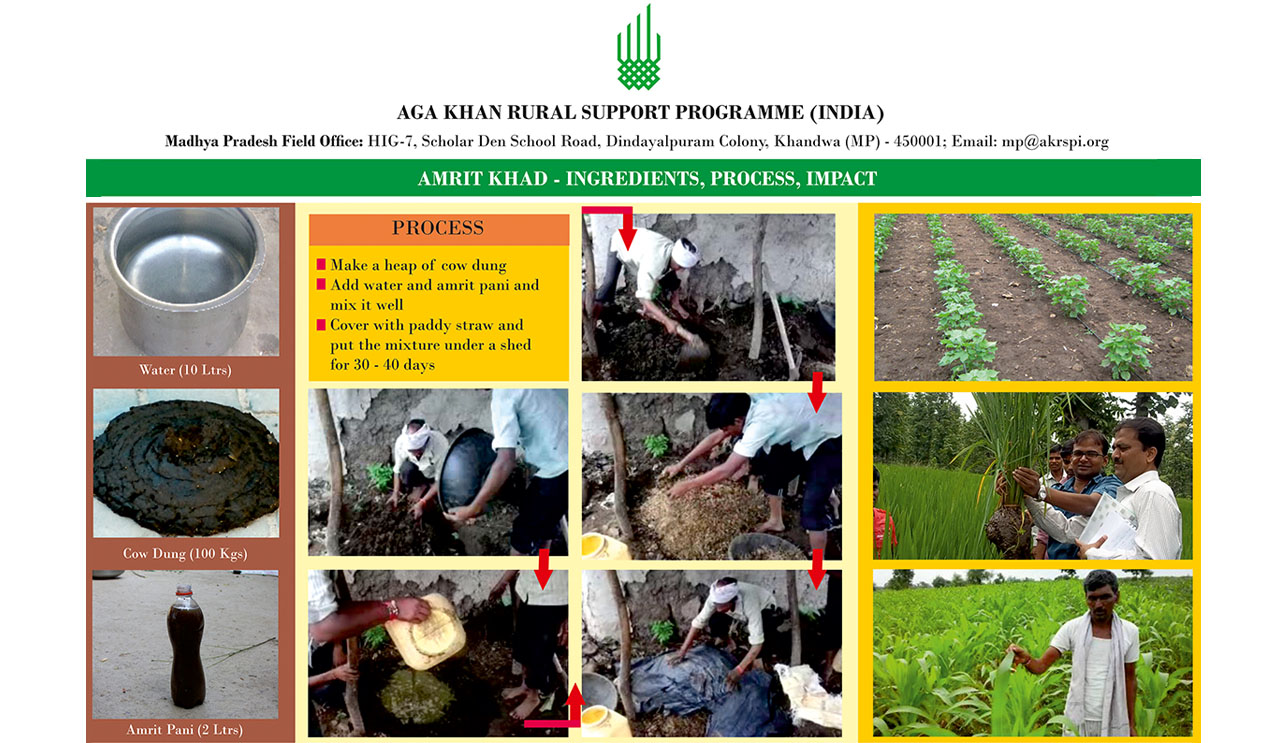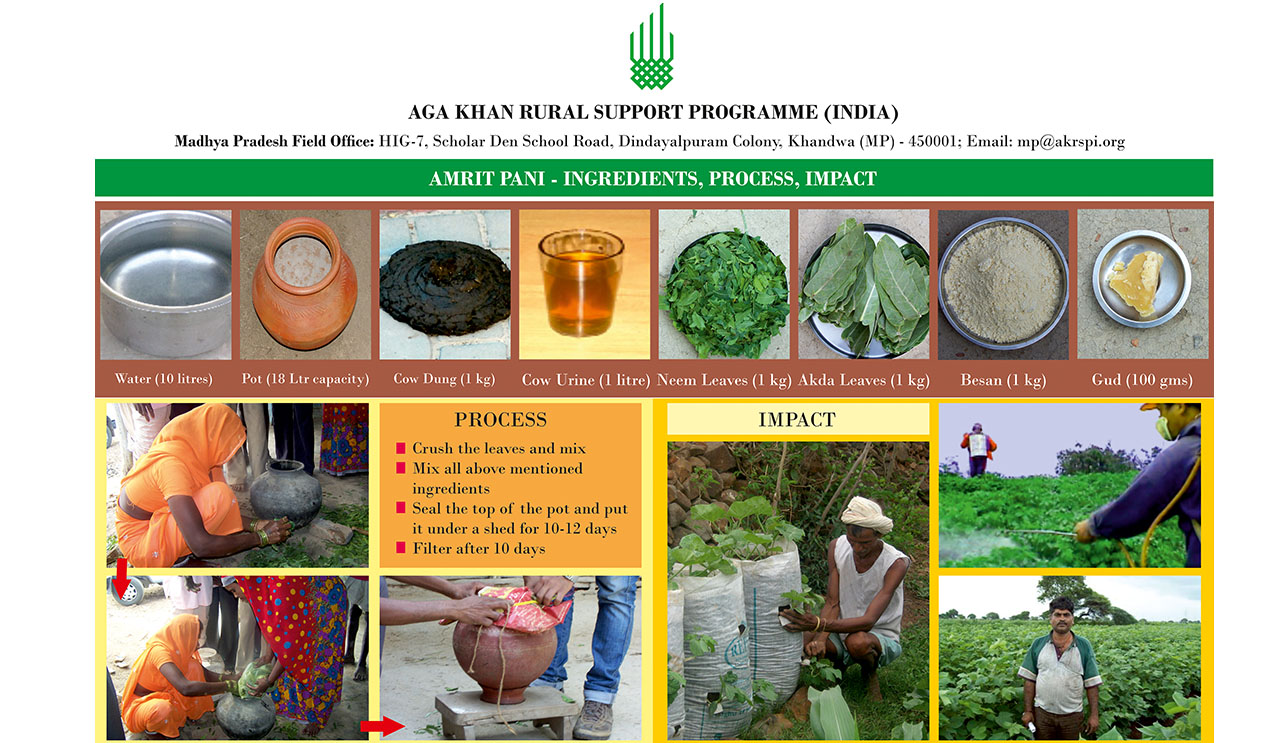Amrit Krishi
"Amrit Krishi" is an efficient conservation farming approach which has been promoted by AKRSP(I) inthe last couple of years. Amrit Krishi loosely translated as Nectar farming involves the production and use of organic compost and bio pesticide which go by the name of "œAmritKhaad"and "Amrit Pani" respectively. Both of these are lowcost but highly effective organic products that strengthende graded farm soils as well as build immunity of standing crops and protect them from pest attacks. These can easily be prepared by farmers themselves with locally availablematerials and within a short period of time. Amrit pani for instance, is an eco-friendly product, acts as an effective insectand pest repellent and a liquid growth promoter for all typesof plants (field crops, horticultural crops such as fruits andvegetable crops, ornamental plants etc). From numerous field experiences across locations, it has been proved toreduce input cost towards chemical fertilizer and pesticides significantly.
- The production processes of Amrit pani involves the mixing of water, cow urine, Neem tree leaves, Calotropis plant species's leaves, Chick pea flour, fresh cow dung and molasses. The leaves should be crushed and mixed for faster decomposition. Mixing these ingredients thoroughly with a stick/ by hand and then sealing the mouth of the storage vessel/pot with a polythene sheet along with soilplaster in cool, dark and dry conditions would lead to faster decomposition in 10-15 days time. This action is done inanaerobic conditions (decomposition in absence of air) andsubsequently the decoction can be filtered and sprayed bya pump on crops.
- To make Amrit Khaad, Amrit pani is mixed with 20-25 days olddried Cattle dung and water thoroughly. This mixture isthen covered with materials like paddy straw, dried grassesor leaves or old gunny bags and allowed to decompose. After roughly 25-30 days, this mixture's readiness can beas certained by feeling the physical texture which resembles that of tea leaves and is also odourless.
Practice of Amrit Krishi is now widely adopted by farmers in India. AKRSP(I) won "Development Marketplace" award from The World Bank for this innovation in the year 2012.

